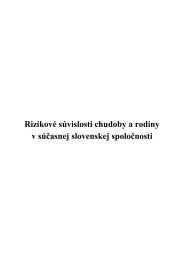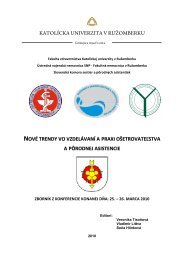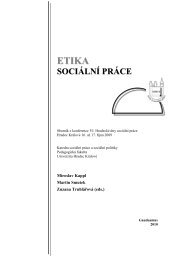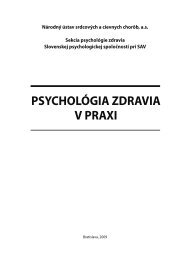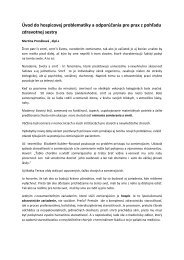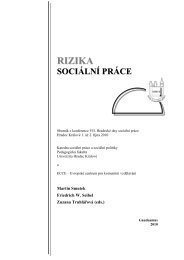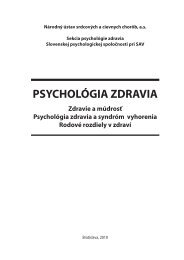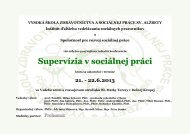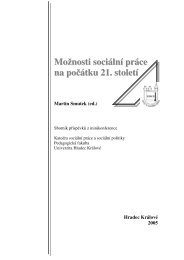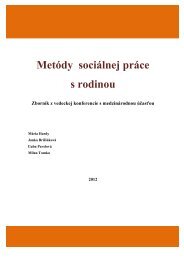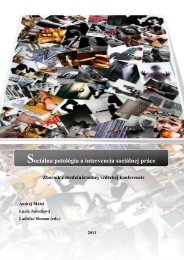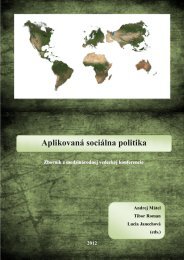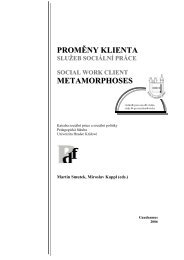Zmena klÃmy â možný dopad (nielen) na obyvateľstvo - Prohuman
Zmena klÃmy â možný dopad (nielen) na obyvateľstvo - Prohuman
Zmena klÃmy â možný dopad (nielen) na obyvateľstvo - Prohuman
Create successful ePaper yourself
Turn your PDF publications into a flip-book with our unique Google optimized e-Paper software.
Integral Approach framework would contribute to the process of creating a more<br />
resilient global economic system, giving intrinsic value to cultural diversity and<br />
rediscovering the spiritual and moral economic core, from which our economic<br />
systems have been detached.<br />
Climate change, as one of the key global challenges facing humanity, therefore represents<br />
an opportunity to develop economy and society that will be based on the<br />
principles of sustai<strong>na</strong>ble development. Furthermore, climate change can become<br />
the starting point to develop truly transdiscipli<strong>na</strong>ry and transcultural approach<br />
to education for sustai<strong>na</strong>ble development, as a pillar of global and development<br />
education. This thesis is supported by the a<strong>na</strong>lysis of the green economy paradigm,<br />
which is claimed by the United Nations, and in which ESD is considered as an important<br />
cross cutting area.<br />
Key words: sustai<strong>na</strong>ble development, low-carbon society, climate change, education<br />
for sustai<strong>na</strong>ble development, global education, integral approach<br />
INTRODUCTION<br />
The complexity of the challenges we are facing today<br />
The increasing impacts of climate change are widely experienced. Our Planet<br />
Earth is in bad condition also due to other problems, like population growth,<br />
damages to the ecosystem, unpleasant surprises such as Fukushima, … The list of<br />
troubles – environmental social, economic – is much longer: terrorism, fi<strong>na</strong>ncial<br />
crises, polarisation of the society, migrations, revolutions and wars, energy crises,<br />
… and these problems are interrelated, mutually reinforcing… Briefly – our world<br />
is so confusing! Old ways of fragmented, schematic thinking, problem solving and<br />
learning are not adequate anymore. More holistic, integrative approaches to deal<br />
with this multitude of complex problems are urgently needed.<br />
Global challenges in the context of a knowledge society require such radical<br />
changes in thinking and behaviour of individuals, organisations and societies as<br />
probably never before in the human history – which means learning in the broadest<br />
sense. Due to the complexity of these interrelated problems and threats in<br />
the globalised world, an integral, holistic and systemic knowledge base is urgently<br />
needed. In order to assure for permanent process of innovation in education,<br />
timely responsive to global challenges, we cannot limit ourselves only to concepts<br />
and examples in the educatio<strong>na</strong>l sector. Educatio<strong>na</strong>l scientists, practitioners and<br />
133



